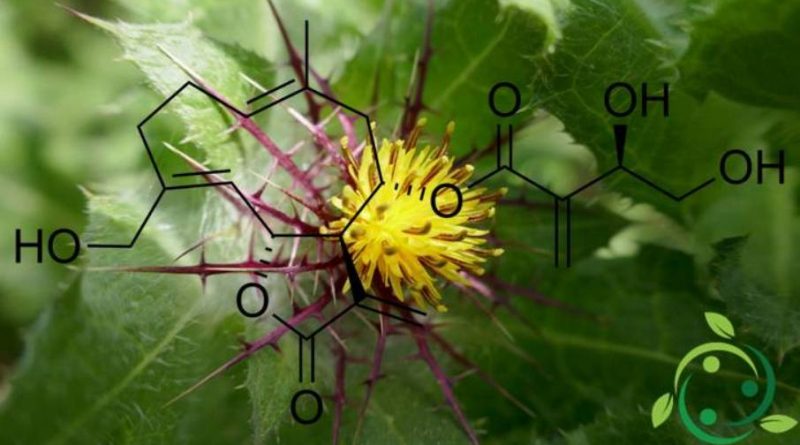Cnicin
Cnicin
Cnicin, whose brute chemical formula is: C20H26O7, is the main component of bitter substances, more responsible for the properties of the holy cardo (Centaurea benedicta (L.) L., 1763).
The cnicina is a bitter glycoside (sesquiterpenic lactone) extracted from the flowering flowers of this plant and used for its eupeptic properties. This compound was isolated for the first time in 1841 by Nativelle. In 1955 it was reported that the cnicina is endowed with antibiotic activity especially with regard to Gram negative bacteria.
The use of products and preparations based on cnicina should however be subjected to medical advice as they are reported allergic reactions in predisposed individuals (individual hypersensitivity to Asteraceae).
In fact, due to the presence of cnicina, high doses (more than 5 grams of drug per cup of infusion) irritate the gastric mucosa and cause vomiting. The cnicina, in fact, following high doses, can be irritating to the gastrointestinal mucosa and cause burning in the mouth and esophagus, vomiting, colic with diarrhea, etc.
Furthermore, use is contraindicated in patients with gastric hyperacidity.
For the positive therapeutic effects the cardo santo is used in phytotherapy; in fact the whole dried plant (removed the larger parts and of the stem) and flowered, has bitter, tonic, stimulating, emagogical, diuretic, diaphoretic properties. It is also used in liquor, infactilThe Cnicina is used as a bitter tonic and the value of bitterness is about 1,500.
Warning: The information reported is not medical advice and may not be accurate. The contents are for illustrative purposes only and do not replace medical advice.

